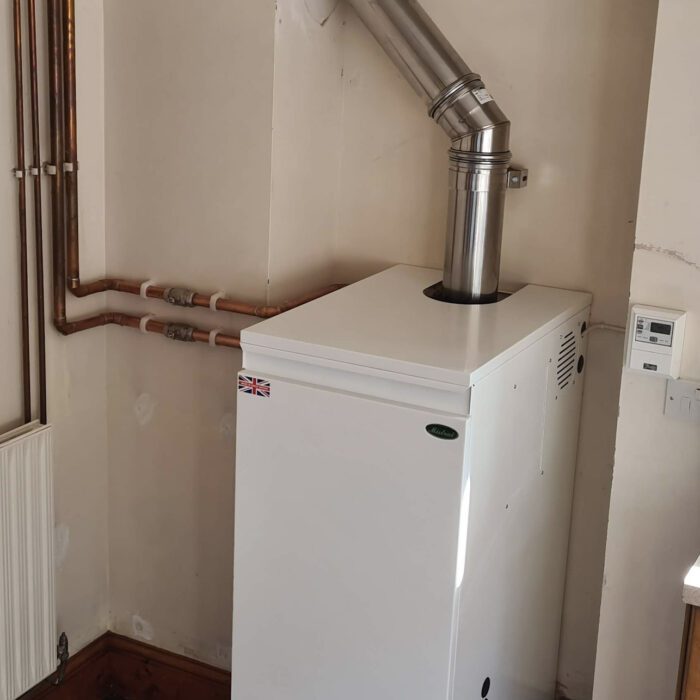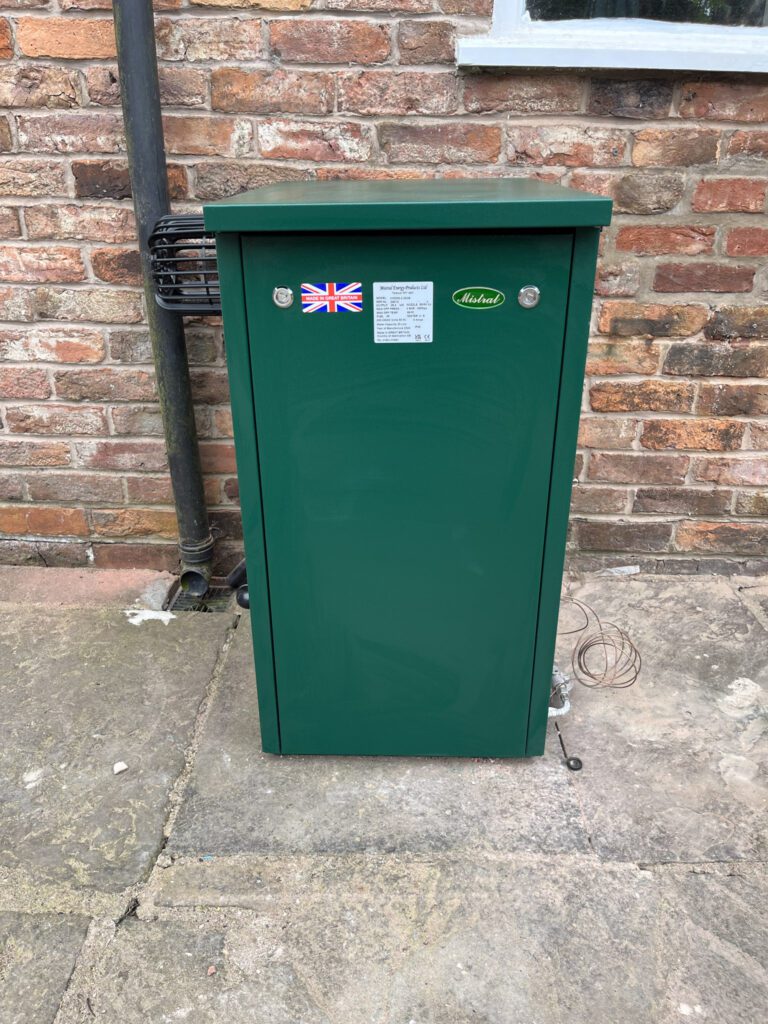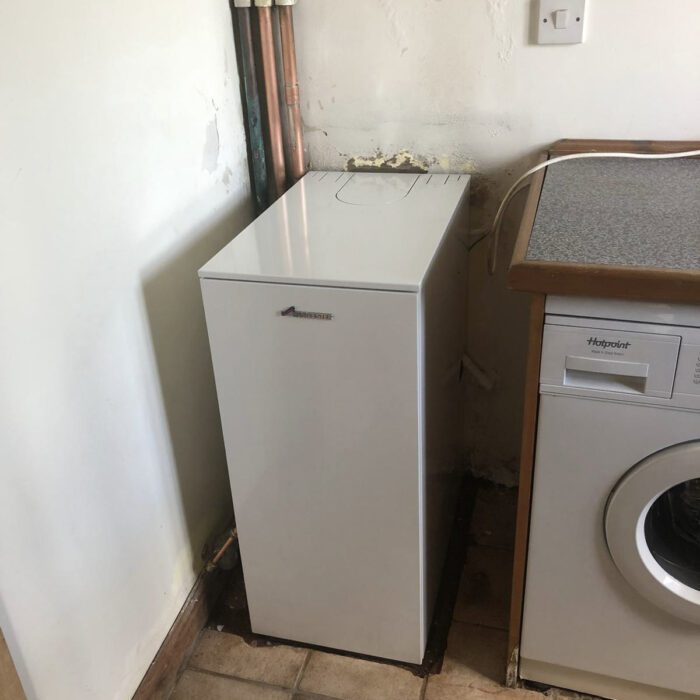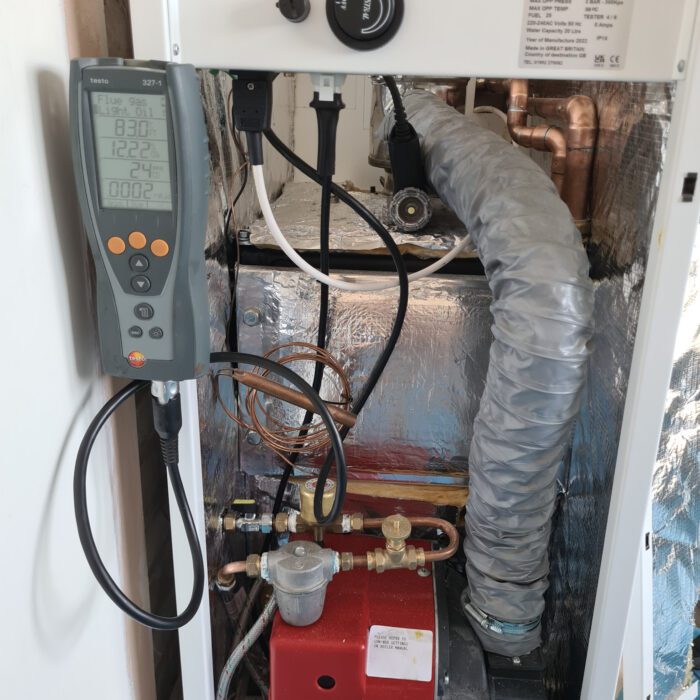What’s Included in an Oil Boiler Service?
A Comprehensive Guide
Maintaining your oil boiler through regular servicing is essential for ensuring its efficiency, longevity, and safety. An oil boiler service involves several important checks and tasks a qualified technician performs to keep your heating system in top condition. In this blog post, we’ll explore what’s typically included in an oil boiler service, why each step is important, and how regular servicing can benefit you.




1. Inspection of the Boiler
What It Involves:
- Visual Inspection: The technician will conduct a thorough visual inspection of the boiler to check for any visible signs of wear, damage, or leaks.
- Component Check: Key components such as the burner, heat exchanger, and flue system will be examined for signs of wear or malfunction.
Why It’s Important:
- Prevention of Issues: Early detection of potential problems can prevent more serious and costly repairs in the future.
- Safety: Ensures that all parts are functioning correctly and safely to prevent hazards such as carbon monoxide leaks.
2. Cleaning the Boiler
What It Involves:
- Burner Cleaning: The burner is cleaned to remove any soot or debris that could affect combustion efficiency.
- Heat Exchanger Cleaning: The heat exchanger is cleaned to ensure optimal heat transfer and efficiency.
Why It’s Important:
- Efficiency: Cleaning the burner and heat exchanger helps maintain high efficiency, reducing fuel consumption and lowering energy bills.
- Performance: A clean boiler operates more effectively, providing consistent heating and hot water.
3. Checking and Adjusting the Burner
What It Involves:
- Burner Settings: The technician will check and adjust the burner settings to ensure the correct air-to-fuel ratio for optimal combustion.
- Nozzle Check: The nozzle, which directs the fuel into the burner, will be inspected for wear and replaced if necessary.
Why It’s Important:
- Efficiency: Proper burner settings and a well-maintained nozzle ensure efficient combustion, improving fuel efficiency and reducing emissions.
- Longevity: Prevents unnecessary wear and tear on the burner, extending its lifespan.
4. Testing the Boiler
What It Involves:
- Operational Tests: The technician will test the boiler’s operation to ensure it’s running smoothly and efficiently. This includes checking the temperature and pressure.
- Safety Tests: Tests will be performed to check for leaks and ensure that safety controls and alarms are functioning correctly.
Why It’s Important:
- Performance: Ensures that the boiler operates efficiently and effectively, providing consistent heating and hot water.
- Safety: Confirms that all safety features are working properly, reducing the risk of dangerous issues such as carbon monoxide leaks.
5. Checking the Flue and Ventilation
What It Involves:
- Flue Inspection: The flue system will be checked to ensure it’s clear of blockages and properly venting exhaust gases.
- Ventilation Check: Adequate ventilation around the boiler is inspected to ensure it’s meeting safety standards.
Why It’s Important:
- Safety: Proper flue and ventilation are critical for safe operation, preventing the buildup of harmful gases and ensuring proper exhaust.
- Efficiency: Ensures that the boiler is operating at its most efficient by allowing proper airflow.
6. Inspecting and Testing the Oil Tank and Fuel Supply
What It Involves:
- Tank Inspection: The oil tank will be inspected for signs of leaks or damage.
- Fuel Supply Check: The fuel supply system, including pipes and filters, will be checked to ensure there are no blockages or issues.
Why It’s Important:
- Safety: Identifying and addressing issues with the oil tank or fuel supply helps prevent leaks and other potential hazards.
- Reliability: Ensures a consistent and reliable fuel supply to the boiler, preventing disruptions in heating.
7. Providing a Service Report
What It Involves:
- Detailed Report: After completing the service, the technician will provide a detailed report outlining the work carried out, any issues found, and recommendations for future maintenance or repairs.
Why It’s Important:
- Transparency: Keeps you informed about the condition of your boiler and any potential issues.
- Planning: Helps you plan for any necessary repairs or replacements, avoiding unexpected breakdowns.
Overview:
Regular oil boiler servicing is crucial for maintaining the efficiency, safety, and longevity of your heating system. By including thorough inspections, cleaning, and testing, a professional service ensures that your boiler operates reliably and efficiently throughout the year.
Investing in regular servicing not only helps prevent costly repairs and breakdowns but also ensures your home remains comfortable and safe. If it’s been a while since your last boiler service or if you’re due for a check-up, contact a qualified technician today to schedule an appointment and keep your heating system in top shape.
For more information about oil boiler servicing or to book a service, don’t hesitate to reach out to your local heating specialist.
Looking for a New Boiler Installation
By Professional and Knowledgeable Central Heating Specialists

